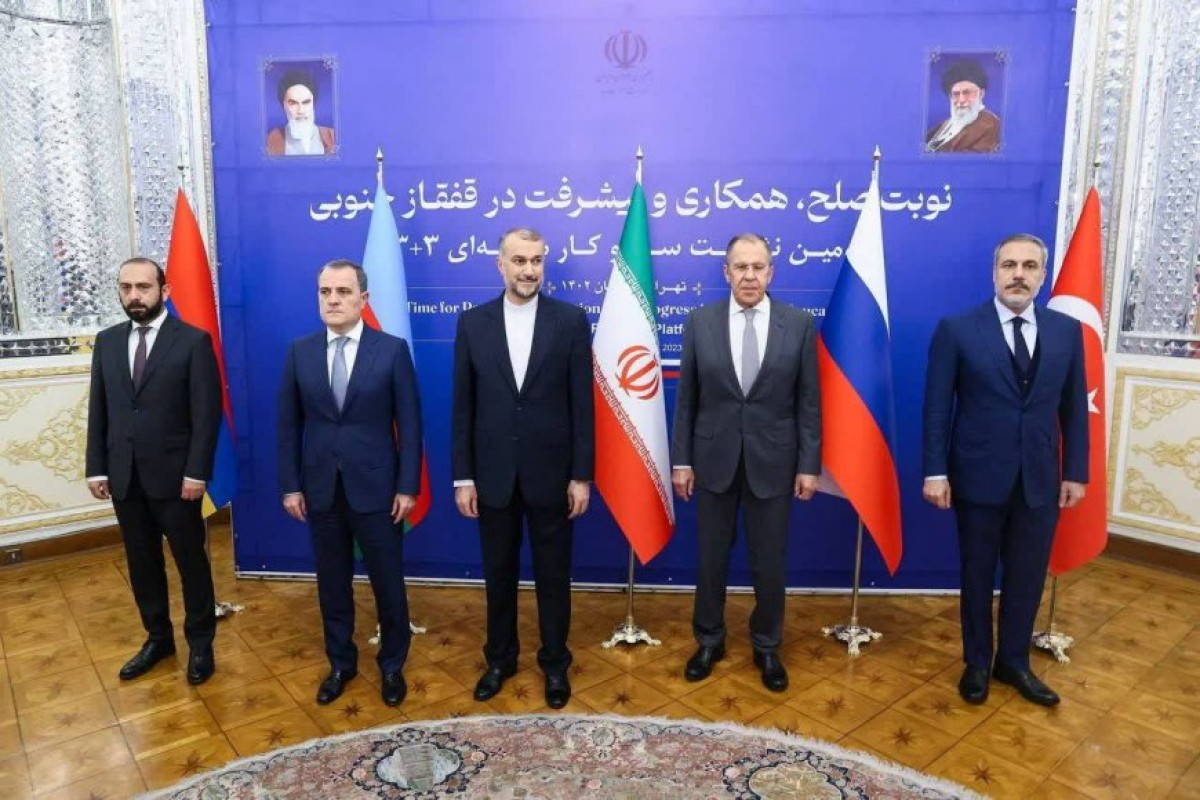 4722
4722
The Iran Factor: Armenia, Azerbaijan, and the Quest for Peace
The Iran Factor: Armenia, Azerbaijan, and the Quest for Peace
By: N. Daneshvar
The geopolitical landscape of the Caucasus has been shaped by a legacy of conflict and contention, with the region serving as a crucible of historical grievances, ethnic rivalries, and territorial disputes. The emergence of independent governments in the aftermath of the First World War, coupled with the collapse of the Russian Empire and the Bolshevik Revolution of 1917, set the stage for a protracted struggle over territories such as the disputed Nagorno-Karabakh region, sparking animosities that continue to reverberate to this day.
The South Caucasus stands out as one of the most volatile regions globally, with the longstanding conflict between Armenia and Azerbaijan over Nagorno-Karabakh serving as a focal point of tension and instability. The contested status of Nagorno-Karabakh, situated in the eastern part of Armenia but internationally recognized as part of Azerbaijan, underscores the intricate web of historical claims and demographic complexities that have fueled decades of strife and bloodshed.
The origins of the Armenia-Azerbaijan conflict can be traced back to the late 1980s, when simmering tensions erupted into open hostilities over Nagorno-Karabakh. The ensuing armed confrontations, marked by shifting territorial control and human suffering, culminated in Azerbaijan's recent military campaign to reclaim Nagorno-Karabakh from Armenian forces, resulting in a significant shift in the region's power dynamics. Despite sporadic peace initiatives led by external mediators, deep-seated animosities and external interventions have impeded the realization of a durable peace settlement that upholds international norms and respects the rights of all parties involved.
The recent developments, including Azerbaijan's military advances and the subsequent displacement of Armenian residents from Nagorno-Karabakh, have underscored the urgent need for a comprehensive and sustainable resolution to the conflict. The joint efforts by Armenia and Azerbaijan to embark on a path of reconciliation and trust-building, as evidenced by their commitment to normalize relations in the aftermath of the recent hostilities, hold promise for a new chapter in the region's tumultuous history. The willingness of both nations to engage in dialogue and seek common ground reflects a recognition of the need to transcend entrenched grievances and forge a path towards peace and stability. Central to the prospects for lasting peace in the Caucasus is the adherence to international principles and norms, including respect for sovereignty, territorial integrity, and the sanctity of international borders.
By upholding these fundamental tenets of the global order, Armenia and Azerbaijan can lay the groundwork for a future characterized by cooperation, mutual respect, and shared prosperity. Iran's role in the South Caucasus crisis, with its emphasis on peace and security, offers a valuable perspective on the complexities of the region. The four basic principles articulated by Iran's leadership, focusing on the liberation of occupied territories, the protection of Armenian security, the preservation of existing borders, and the exclusion of external interference, underscore a commitment to stability and peace that resonates beyond national boundaries.
As Armenia and Azerbaijan navigate the path towards normalization, the broader implications of their reconciliation efforts extend beyond their immediate borders, shaping the geopolitical dynamics of the wider region. The successful resolution of the Armenia-Azerbaijan conflict holds the potential to not only usher in a new era of peace and cooperation but also to set a precedent for conflict resolution and diplomacy in other volatile regions across the globe.
In conclusion, the road to peace in the Caucasus is fraught with challenges and complexities, but the recent developments offer a glimmer of hope for a future defined by reconciliation, cooperation, and progress. By embracing the principles of international law, mutual respect, and dialogue, Armenia and Azerbaijan can chart a course towards a sustainable peace that benefits not only their own citizens but also the broader international community.
 4722
4722
Comment
Post a comment for this article